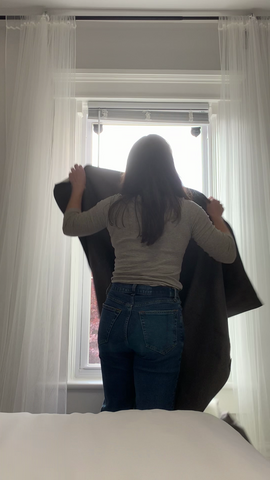Navigating toddlerhood can be a challenging time, especially when it comes to establishing healthy sleep habits. As parents, we continually strive to provide the best for our children, and ensuring they get the right amount of sleep is critical to their development. This blog post will guide you through identifying an optimal bedtime for your 18-month-old, creating a consistent nap schedule, understanding their nighttime sleep needs, and mastering their wake windows.
Identifying the Ideal Bedtime for 18-Month-Old Toddlers
The most suitable bedtime for your 18-month-old usually falls between 7:00 pm and 8:30 pm. However, remember that every child is unique, with their routines and preferences affecting the ideal sleep time. Try out different bedtimes and notice how quickly they doze off and their alertness the following day to ascertain their perfect sleep schedule.
Designing a Consistent Nap Schedule for Your 18-Month-Old
Your 18-month-old toddler is likely to need one or two naps daily. Regular and well-planned naps contribute to a healthy sleep pattern, providing the necessary rest for your growing child. As your toddler grows, they might demand more extended wake windows before naps. For a more restful naptime, maintain a peaceful and noise-free environment.
It's essential to remember that each child's nap needs differ. Monitor your toddler's behavior to adjust their nap schedule as needed. Offering ample opportunities for physical activities during wake periods can significantly enhance nap quality.
Understanding Nighttime Sleep Needs for an 18-Month-Old
Typically, an 18-month-old should sleep for 11 to 12 hours during the night. Sleep plays a pivotal role in a child's cognitive development, emotional stability, physical growth, immune strength, and balanced appetite. A consistent bedtime routine in a comfortable sleep environment helps ensure your child gets the necessary amount of sleep.
Mastering Wake Windows for Your 18-Month-Old
Wake windows for 18-month-olds usually span from 3.5 to 5 hours. Look out for your child's sleep signals, such as rubbing eyes, yawning, or fussiness, to understand when they're ready for sleep. A swift response to these signals can prevent your toddler from getting overtired and finding it challenging to fall asleep.
Consider adopting a calming pre-sleep routine with activities like dimming lights, soft music, or gentle cuddling to prepare your toddler for sleep. Light exposure can disrupt the natural sleep-wake cycle. Utilizing blackout curtains in the sleeping area ensures a consistently dark, relaxing environment promoting sound sleep habits and rejuvenating rest.

Common Reasons for an 18-Month-Old Waking Up at Night
Several typical reasons for night wakings in an 18-month-old include:
- Hunger: Some toddlers may still require a nighttime feeding at this age. If hunger appears to be the cause, try offering a small feeding to help your child settle back to sleep.
- Sleep associations: If your child relies on being rocked, nursed, or held to fall asleep, they may wake up when these conditions are no longer present. Gradually teaching your child to self-soothe and fall asleep independently can help reduce night wakings.
- Teething: The discomfort associated with teething can interrupt sleep. Providing a teething toy or using over-the-counter remedies (as recommended by your pediatrician) can help alleviate your child's discomfort.
- Sleep regressions: Around 18 months, some toddlers experience sleep regressions, which are temporary disruptions to their sleep patterns. Being patient and maintaining a consistent sleep routine can help your child get through this phase.
- Environment: High-quality blackout curtains can potentially help reduce night wakings related to light sensitivity. By creating a dark and calming environment, they can contribute to a more restful and uninterrupted sleep for your little one.
Happy Sleeping, for You and Your Baby
Creating a consistent sleep schedule, establishing a bedtime routine, and understanding your child's sleep needs are crucial factors in promoting better sleep for your 18-month-old. A conducive sleep environment also plays a significant role in ensuring your child gets the rest they need.
To help your child sleep through the night, consider adding the most recommended blackout curtain by sleep specialists in North America! With these curtains, you can create a peaceful haven for your child, making it easier for them to settle down and rest. Don't forget to use code WELCOME10 at checkout for $10 off your first purchase!






